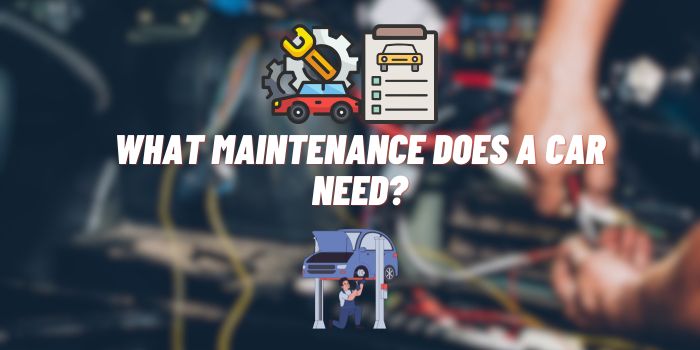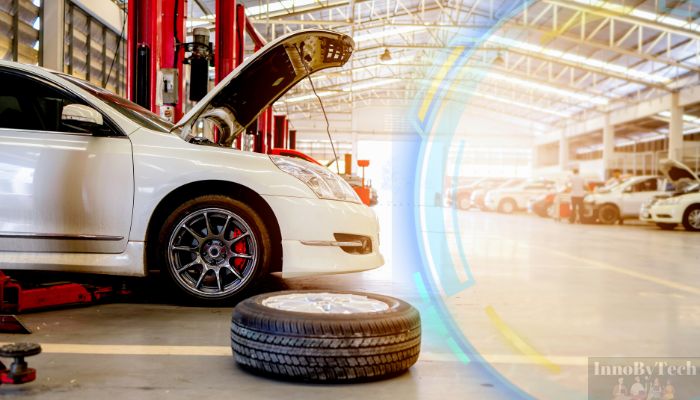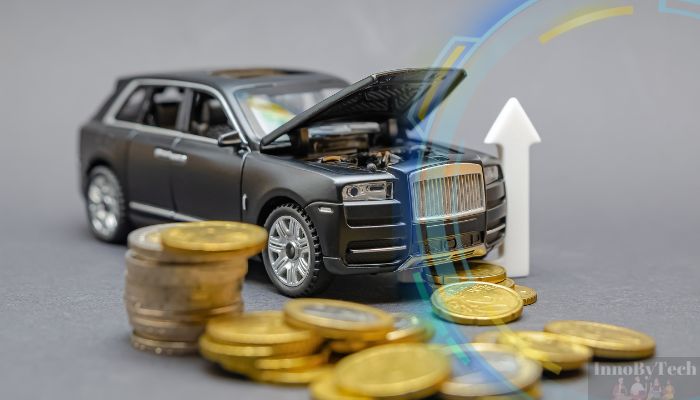What Maintenance Does a Car Need?
Maintaining your car is essential to keeping it safe, efficient, and roadworthy for years to come. Regular car maintenance helps ensure optimal performance, minimize the risk of costly repairs, and boost resale value. But what maintenance does a car need to ensure optimal performance? Understanding the key areas of upkeep can save you time and money while ensuring a safer driving experience.
Why Regular Car Maintenance Matters?

Proper maintenance can significantly extend the lifespan of your vehicle. By addressing potential issues early, you prevent small problems from becoming major repairs. Routine maintenance like oil changes, tire rotation, and brake inspections ensures that your car remains in top condition.
Performance & Safety:
A well-maintained car offers better performance and enhanced safety. Brakes, tires, and fluid levels are critical to safe driving, and neglecting them can increase the likelihood of accidents. Regular maintenance helps you avoid these risks and keep your passengers safe.
Fuel Efficiency:
Regular car maintenance also plays a significant role in improving fuel efficiency. A well-maintained engine, proper tire inflation, and clean filters allow your vehicle to run more efficiently, reducing fuel consumption and emissions.
Essential Car Maintenance Tasks
Regular car maintenance is key to keeping your vehicle running smoothly. These essential tasks ensure optimal performance, safety, and longevity. Let’s look at the most important maintenance duties every car needs.
Oil Changes
- Why it’s important: Oil lubricates your engine, helps to cool it, and keeps it running smoothly. Without regular oil changes, your engine is at risk of overheating or breaking down.
- Recommended intervals: Change the oil every 5,000 to 7,500 miles, depending on your car’s make and model.
- Signs oil change is needed: Look for warning signs such as low oil pressure, dark or dirty oil, and strange engine noises.
Tire Maintenance
- Rotation: Regular tire rotation prolongs the life of your tires by ensuring even wear.
- Tire pressure checks: Maintaining optimal tire pressure enhances safety, improves fuel efficiency, and reduces wear and tear.
- Tread depth check: If your tire tread is worn below a safe level, it’s time to replace them for better grip and safety.
Brake System Check
- Why brakes need regular inspections: Brake maintenance is crucial for your safety, as worn brake pads or failing brakes can lead to accidents.
- Key parts to monitor: Regularly inspect brake pads, rotors, and brake fluid levels to ensure everything is functioning properly.
Fluid Checks
- Transmission fluid: Check and replace transmission fluid as recommended by the manufacturer to ensure smooth shifting.
- Coolant and radiator: Regularly check your coolant levels to prevent your engine from overheating.
- Power steering fluid: Keeping an eye on power steering fluid helps ensure smooth handling and steering control.
Battery Health
- Signs of wear: A slow engine start, dim headlights, or electronic malfunctions are signs of a weakening battery.
- Cleaning terminals: Regularly clean battery terminals to prevent corrosion, which can lead to battery failure.
Air Filter Replacement
- Why it matters: A clean air filter improves fuel efficiency and ensures that your engine receives proper airflow.
- When to replace: Replace the air filter based on the manufacturer’s recommendation or when it’s visibly dirty.
Windshield Wipers and Fluid
- Wipers: Replace wipers every six months to a year or when they leave streaks on the windshield.
- Fluid: Keep windshield washer fluid topped off for optimal visibility during all driving conditions.
Seasonal Car Maintenance

Seasonal changes can significantly affect your vehicle’s performance. Preparing your car for winter or summer ensures safety and prevents weather-related issues. Here’s what to focus on for each season.
Winter Preparation
- Winter tires: Switch to winter tires if you live in areas with snow or ice. These tires provide better traction and safety in harsh conditions.
- Battery check: Cold weather can affect battery performance, so check its health before winter.
- Defroster and heater maintenance: Ensure both systems are working properly to improve visibility and comfort during the colder months.
Summer Preparation
- Air conditioning check: Get your A/C system checked to ensure proper cooling during the hot summer months.
- Tire inspection: Hot weather can cause tires to expand, leading to blowouts, so inspect them regularly.
- Coolant system check: Ensure your car’s cooling system is ready for high temperatures to prevent overheating.
Advanced Maintenance for High-Mileage Vehicles
As your vehicle racks up miles, it requires more specialized care. High-mileage vehicles need advanced maintenance to ensure continued reliability and performance. Here are key areas to focus on.
Timing Belt/Chain Replacement
- Importance: The timing belt/chain is crucial for engine operation. If it fails, it can cause significant engine damage.
- Recommended mileage: Replace it every 60,000 to 100,000 miles, as recommended by your manufacturer.
Suspension and Steering Components
- Common wear signs: Noises when driving over bumps, uneven tire wear, and loose steering are signs of suspension issues.
- Regular inspections: Catching suspension problems early can prevent costly repairs down the road.
Exhaust System Inspection
- Why it matters: A well-functioning exhaust system is important for reducing emissions and ensuring fuel efficiency.
- Signs of trouble: Unusual noises or reduced engine performance can indicate exhaust issues that need to be addressed.
DIY vs. Professional Maintenance
You can tackle simple tasks like checking tire pressure, changing oil, and replacing wiper blades at home with minimal tools. Staying on top of these minor tasks helps reduce long-term costs.
More complex jobs, such as brake work, transmission service, and suspension repairs, should be handled by professionals. For advanced maintenance, consider visiting Car Maintenance in Wheeling to ensure your vehicle gets the expert care it needs.
Manufacturer’s Maintenance Schedule
Always refer to your car’s manual for manufacturer-specific maintenance recommendations. These guidelines ensure your car remains in peak condition.
Regularly scheduled services such as oil changes, fluid checks, and part replacements are critical to keeping your car running smoothly and preventing breakdowns.
Leverage mobile apps and services that help track your car’s maintenance schedule, set reminders, and monitor your vehicle’s health more efficiently.
How Regular Maintenance Saves Money

Routine maintenance may seem costly at first but is far cheaper than unexpected major repairs or part replacements. A small investment in preventive care saves you from larger expenses in the long run.
A proactive maintenance approach helps reduce the risk of expensive breakdowns and ensures that small issues don’t escalate into bigger problems.
Common Car Maintenance Myths
Car maintenance can be confusing, especially with common myths floating around. Let’s debunk some popular misconceptions to help you make informed decisions about your vehicle’s upkeep.
- “Premium gas is always better”: Premium gas isn’t necessary for most vehicles unless your manufacturer specifically recommends it.
- “Tire pressure doesn’t change often”: Tire pressure fluctuates with the weather and road conditions, making regular checks important.
- “Oil change every 3,000 miles”: Modern oil and engines can often go 5,000 to 7,500 miles before needing an oil change.
The Bottom Line
Regular car maintenance is essential to keep your vehicle running smoothly, safely, and efficiently. By following your car’s maintenance schedule, staying proactive with seasonal checks, and consulting professionals when needed, you’ll extend your vehicle’s life and avoid costly repairs. Make sure to prioritize your car’s health and stay on top of necessary tasks to ensure a smooth ride every time.
Take control of your car’s maintenance schedule today! Follow your manufacturer’s guidelines and consider reaching out to a trusted mechanic for expert advice on keeping your car in top condition.






